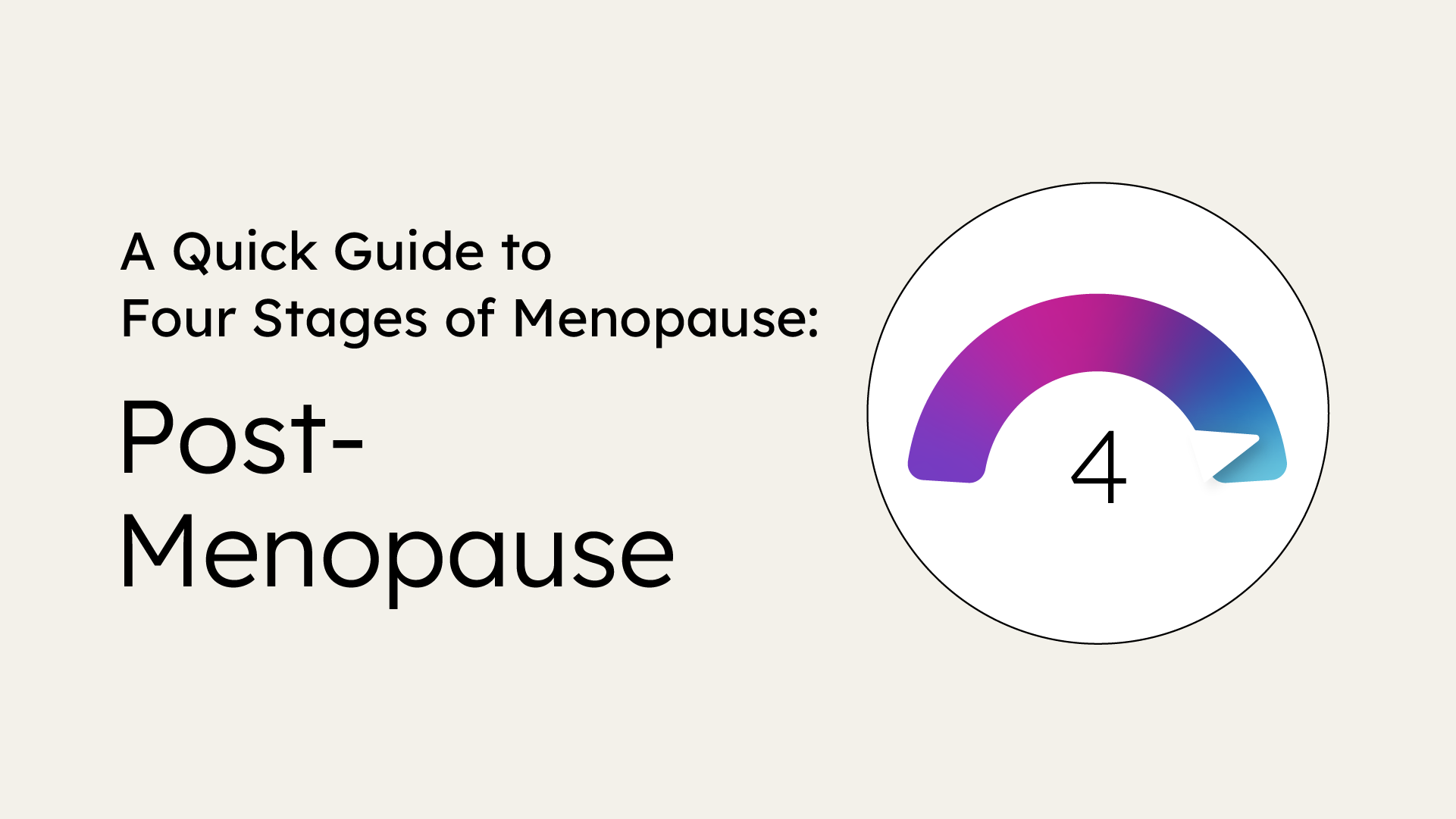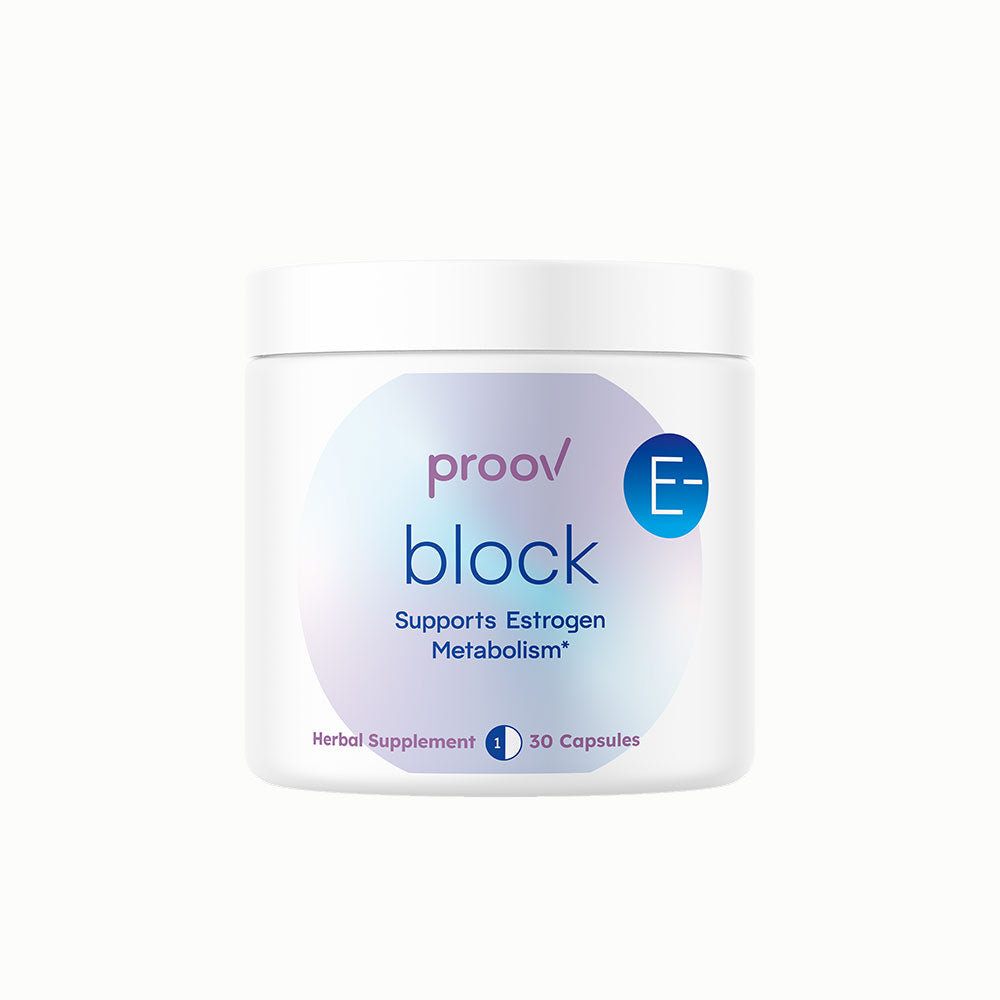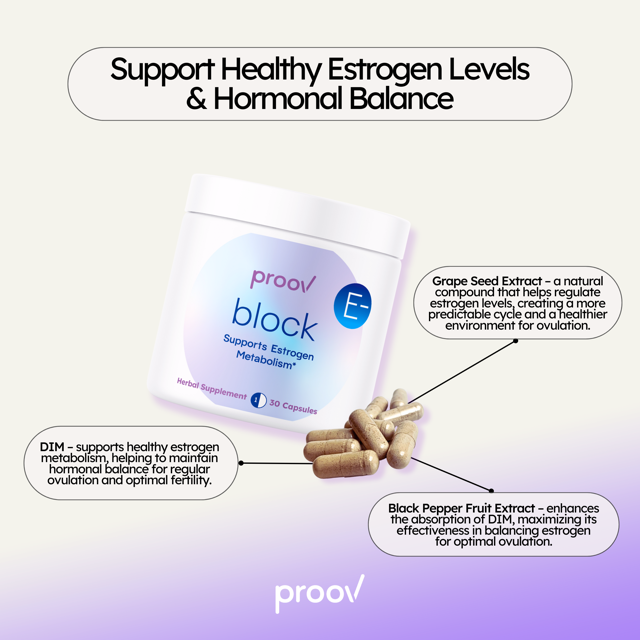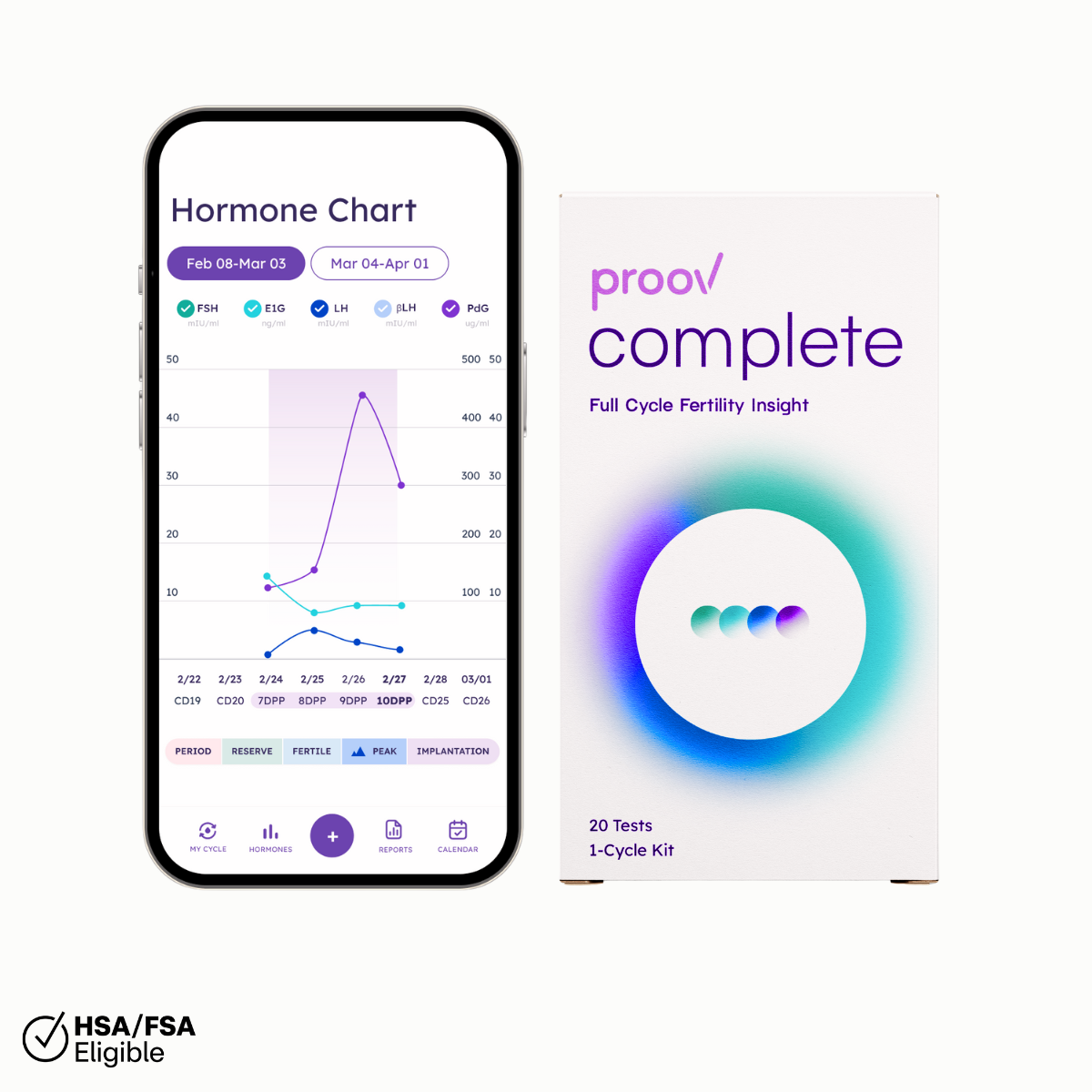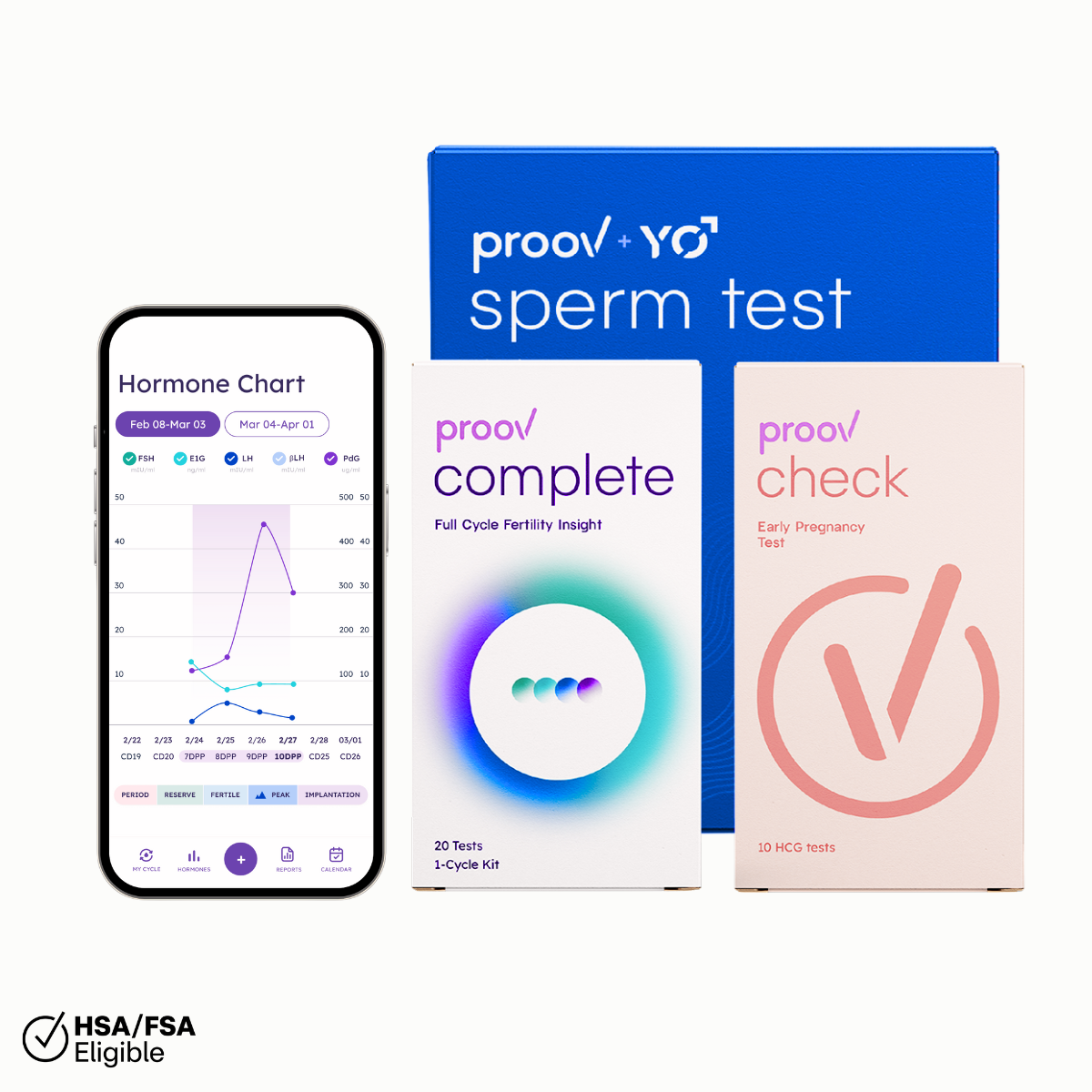Bye bye rollercoaster!
Welcome to post-menopause, the stage where the end of perimenopause and all those disruptive symptoms is finally in sight. Now, it's time to embrace the new normal and manage the lingering effects with confidence and support. Proov is here to guide you through this stage with all the information and resources you need.
What is post-menopause?
Post-menopause is the phase of life after you've reached menopause, which is defined as going 12 consecutive months without a menstrual period. This stage typically begins in your late 40s or early 50s and continues for the rest of your life. Once you are post-menopause, your body can start to adjust to lower levels of estrogen and progesterone.
Where does post-menopause fall within the menopause journey?
Post-menopause follows menopause and is the final stage in your hormonal journey. At this point, many women begin HRT if they have not done so during perimenopause, because it can help reduce the symptoms and health risks of postmenopause. Unlike the fluctuating hormone levels of perimenopause, post-menopause is characterized by consistently low levels of reproductive hormones.
What hormone changes are happening and why?
In post-menopause, estrogen and progesterone levels remain consistently low. The ovaries produce very little of these hormones, leading to the end of menstrual cycles. While the intense hormonal fluctuations of previous stages are over, the low hormone levels can still impact various aspects of your health.
What symptoms are typical for this stage?
During post-menopause, you may experience:
- Hot flashes and night sweats: Although less frequent, these can still occur
- Vaginal dryness and discomfort: Reduced estrogen can lead to continued vaginal symptoms
- Urinary incontinence: Lower estrogen levels can weaken the pelvic floor muscles
- Bone density loss: The risk of osteoporosis increases due to lower estrogen levels
- Cardiovascular health changes: Postmenopausal women have a higher risk of heart disease
- Changes in skin and hair: Thinning hair and dry skin are common as hormone levels drop
How does this stage affect my cycle?
In post-menopause, menstrual cycles have ceased entirely. This lack of periods is a hallmark of this stage, marking the end of the reproductive years. If you experience any vaginal bleeding during post-menopause, it's essential to consult a healthcare provider, as it could indicate an underlying health issue.
What stage is ahead? What can I expect?
Post-menopause is a long-term stage with no further hormonal transitions ahead. Instead, the focus shifts to managing the symptoms associated with low hormone levels and maintaining overall health and well-being.
What signs should I expect to see when transitioning into the next stage?
While post-menopause is characterized by more stable hormone levels, ongoing symptoms such as vaginal dryness, urinary incontinence, and changes in bone and cardiovascular health often increase. Regular health check-ups and proactive management strategies are crucial to address these issues effectively.
Testing regularly to understand the symptoms and changes in this stage, even as they lessen, can help you take proactive steps to maintain your health and well-being. Accurate information, reliable testing, and supportive care are your allies always. Remember, you’re not alone! Proov is here to support you every step of the way!

